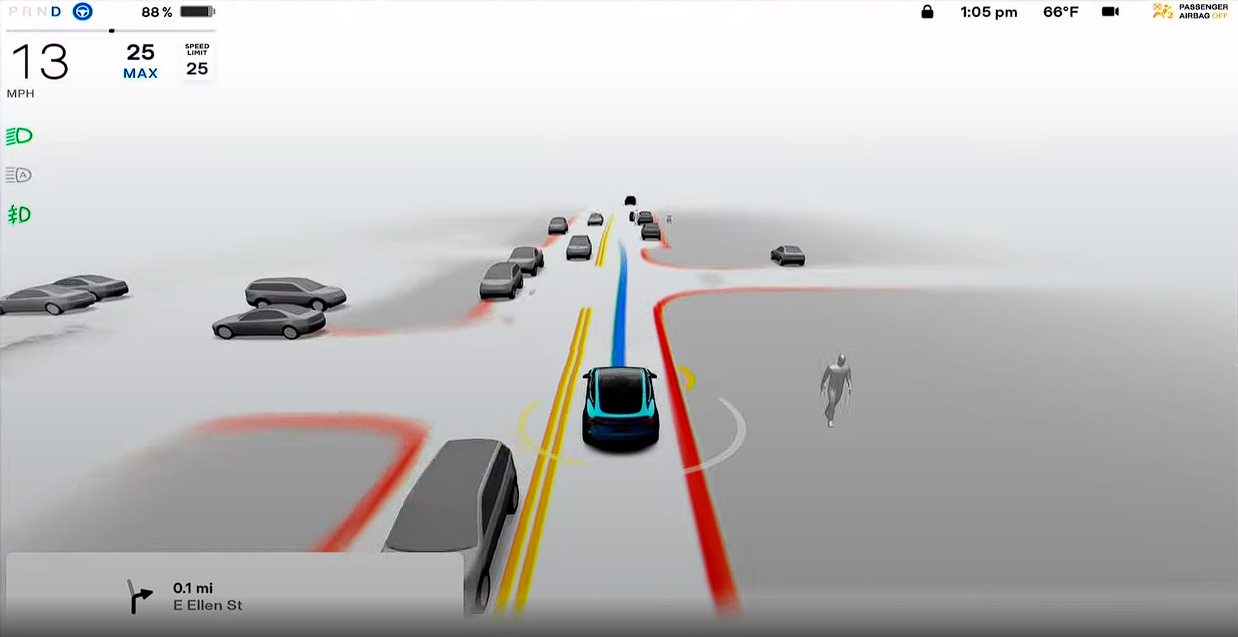Tesla's Full Self Driving - State of Play
Following the recent controversy surrounding Tesla's FSD technology and the subsequent cease-and-desist letter thrust upon the author, I feel it's important to have a quick recap of it’s history, progress towards it’s ambitions and the current state of affairs.
History and development
The software was first mentioned publicly in 2013 in the form of Autopilot, as an advanced lane-keeping and speed management system. It then grew to commercial release as Enhanced Autopilot in 2016, with the deployment of new sensors and processing hardware in the vehicles that was capable of more complex computing. By 2019 we had hardware version 3 and slowly new features were packaged to customers, such as Autopark and Summon. 2020 saw the release of the first Full Self Driving beta to a very limited set of users for testing on public roads, since then the fleet has been growing steadily larger and as of July 2022 the total is over 100,000.
The goal of fully-autonomous transport is giant and will likely be one of the most massive technological feats of humankind. Progressing in just over 100 years from inventing the motor vehicle, to having them drive themselves using computer intelligence sounds almost insane and rightly so because it's an incredibly difficult task to even comprehend, let alone achieve. Thanks to the unpredictability of reality and especially humans, trusting a computer to navigate and manoeuvre massive machinery at high speeds through populated areas is, apparently, more challenging even than launching and landing rovers on mars!
As is to be expected for a project of this size and all machine-learning projects, it's results depend entirely on the size and quality of the data it receives and is trained with. So as Tesla put more and more people on the road to babysit the system as it outgrows it's training wheels, the pace of improvement will increase exponentially. Similar to recent trends around AI-generated images from tools such as DALL-E 2, Midjourney, or Stable Diffusion, where progress seems to leapfrog as the months pass, so too will the confidence and ability of FSD inevitably improve over time.
Price and wide release
Initially released at $8000, the price has crept up gradually to $10k, $12k and since 5th September 2022 will now cost you $15k (£6,800 in the UK and holding for now). That certainly seems like a lot of money for a piece of beta software that's not even usable in most parts of the world, but it's definitely worth considering the long-term investment opportunity. The question of 'how much is FSD worth?' is frankly unanswerable at this point, the robo-taxi industry has been estimated to reach $2 Trillion once it matures - imagine owning a vehicle that can be out 24 hours a day (charging permitting) and constantly earn you money taking fares - how much could that be worth? What's the worth of all the lives lost and collateral damage caused by preventable, human-error traffic accidents every day? It seems almost priceless, yet some say $15k is too much... and it's fair that until it's released it's not technically worth anything, but from reviewing all the evidence available I've no doubt that Tesla will achieve their goal, as they've proven to do time and time again and against all odds.
Beta testers on Social Media
Speaking of evidence, there are countless hours of footage online showcasing the software being used. All it's mistakes, both funny and alarming, all it's miraculous interventions that no human could have predicted, and it's clear to see the aptitude is trending up. It's been likened to a 16-year old learner driver and that may be about accurate presently, but remember how much a teen improves in just a few years on the road, now amplify that by the millions of miles, interactions and experiences shared from hundreds of thousands of users of FSD and the peak of possible performance suddenly skyrockets.
There's plenty of impartial testing being performed constantly and just as a few examples, you may wish to take a look at the following creators:
These people are not being paid by Tesla, but they spend hours testing and retesting the software, uploading the results for us to watch and having useful discussions about its strengths and especially it's weaknesses. Simulations can only ever go so far, a fleet pooling knowledge is the only way to achieve autonomy and it seems only Tesla are doing what's required and have the necessary support.
For first-hand news, be sure to tune in to Tesla's second AI-Day scheduled for 30th September, where we can expect to hear about the development of FSD, it's training supercomputer - Dojo, and updates on their humanoid robot - Optimus, at the very least. They openly admit to use events like this as recruitment drives, so expect to be blown away and then invited to join the team. You can apply directly at https://www.tesla.com/en_GB/AI and help invent the future!





